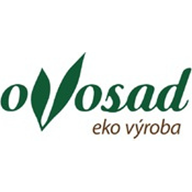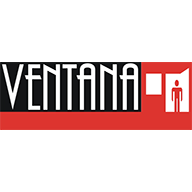The operator of the distillery for growing fruits (hereinafter referred to as the “distillery”) issues these operating regulations in accordance with the laws of the Slovak Republic no. 467/2002 Coll. on the production and marketing of alcohol, as amended, by Decree of the Ministry of Agriculture of the Slovak Republic no. 653/2002 Coll. on the operation of a distillery plant for the cultivation of fruit, by Act NR SR no. 105/2004 Coll. on alcohol excise duty, as amended, and Decree of the Ministry of Finance of the Slovak Republic no. 226/2004 Coll., which establishes the details of the requirements for the arrangement of technological equipment for the production, processing, storage and transport of alcohol, the control of the amount of alcohol, the detection of alcohol stocks and the method of keeping records of alcohol.
§ 1
In the distillery, distillate can only be produced from fruit grown in a temperate climate zone, from its kvass, including fruit wines and grape wines that do not contain extraneous sugar or other additives (hereinafter referred to as “yeast”).
§ 2
The production period in the distillery is from 1 July of the current year until 30 June of the following year. The start of distillate production in the distillery is determined by the operator in each production period. The operator keeps records of received applications for the production of distillate and negotiates the date of production with the grower.
§ 3
(1) The operator of the distillery accepts ferment for further processing only on the basis of the grower’s written request for the production of distillate, which the operator submits to the grower.
(2) I supply the distillery to ensure that ferment of different customers (hereinafter referred to as “grower”) are not mixed (not combined), as long as it brings min. volume 150 liters.
(3) The grower is responsible for the quality of ferment. The yeast must not contain any foreign additives or objects (wood, plastics, stones, etc.) that could damage the technological equipment. In the event of its damage, the grower is fully responsible (will pay) for the damage caused by the grower’s kvass.
(4) The operator, by mutual agreement, may allow the grower to store or store ferment in his premises with the containers and quantity of ferment marked, which the grower will take over after the end of production.
(5) The operator is entitled to refuse to accept kvass in tin containers, in galvanized containers or metal containers with a different surface treatment, in plastic containers that were not intended for food purposes, or which smell or taste show signs of foreign, undesirable and health-damaging admixtures, which could affect the quality of the distillate or degrade the technological equipment of the distillery.
(6) When receiving ferment, the operator checks in particular its quantity, smell, taste, as well as the type of packaging, or whether the ferment is not degraded in such a way that it is not suitable for the production of distillate.
(7) In the event that the operator discovers that the ferment is unsuitable for the production of distillate, he requests the grower to have a professional analysis of such ferment carried out, if the grower does not perform this, or refuses to do so, the operator will not accept the ferment and will refuse to process it.
§ 4
(1) During the production of distillate, the operator may stay in the production premises and the grower stays in the area reserved for customers, from where he watches the production process, the operator is not responsible for damages and injuries caused on the part of the grower (customer).
(2) Growers are not authorized to enter the premises of the production facility arbitrarily. If the operator allows them, they must not touch parts of the equipment due to possible injury, they must not touch customs seals and gauges.
(3) Growers are obliged to respect the instructions of the operator or his responsible employee, to follow these operating regulations in the parts that concern them, otherwise they will have to leave the premises of the distillery.
§ 5
(1) After the production of the distillate, the grower is obliged to take over the distillate produced for him within three working days at the latest and to pay the price of the service according to the price list of the operator and excise duty on the spirit upon collection.
If the grower does not take over the produced distillate within 3 working days of the request from the operator, the operator charges 0.50 euros for each liter and day of storage, unless otherwise agreed with the grower. If the grower does not take over the produced distillate at all during the current production period, the operator is obliged to report this fact to the customs office as the administrator of the alcohol excise tax, and the distillate will be disposed of in accordance with the law.
(2) The grower is obliged to take over the containers in which the ferment was located no later than 3 days after the processing of the ferment. In other cases, the operator is not responsible for possible losses of fermenting containers. For each started day, the operator charges 5.00 euros for each container and day that the grower did not take over, until the grower takes over the containers.
§ 6
The grower applies the complaint directly on the premises of the distillery according to the complaints procedure.
§ 7
This operating procedure is placed in a visible and accessible place. Every grower who applies for the distillate production service is obliged to familiarize himself with its contents by reading them and follow them in the distillery premises. § 8 Violation of these operating regulations by growers and other persons staying in the distillery results in their expulsion from the premises of the distillery and its surroundings.
These operating regulations enter into force on December 1, 2020.
In Myjava, 1/12/2020













